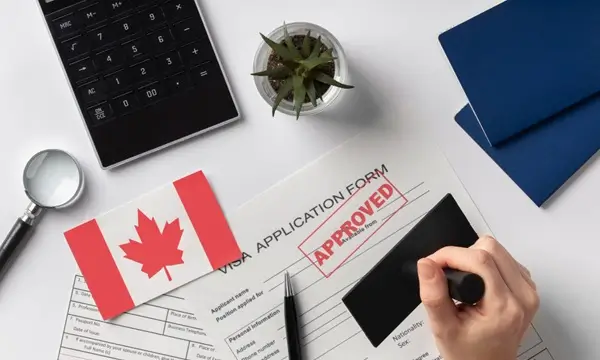Embarking on a journey to Canada, whether for study, work, or travel, is an exciting prospect. However, obtaining a Canadian visa requires careful preparation and understanding of the process. Here are some crucial points to consider before you apply for your Canadian visa:
1. Determine the Type of Canadian Visa You Need
Canada offers various types of visas, including:
- Visitor Visa: For tourism, visiting family/friends, or attending events.
- Study Permit: For students enrolled in Canadian educational institutions.
- Work Permit: For individuals with job offers or specific work arrangements.
- Permanent Residence: For those aiming to settle permanently in Canada through programs like Express Entry, Provincial Nominee Programs, or family sponsorship.
Identify the visa type that aligns with your purpose and check the specific requirements.
2. Understand the Requirements
Each visa category has unique requirements. Common requirements across most visas include:
- Valid Passport: Ensure your passport is valid for the duration of your stay.
- Proof of Funds: Demonstrate you can financially support yourself during your stay.
- Medical Exam: Some applicants may need to undergo a medical examination.
- Police Clearance Certificate: Show you have no criminal record.
- Letter of Invitation: If visiting family/friends, you might need a letter from your host.
Visit the official Immigration, Refugees and Citizenship Canada (IRCC) website for detailed requirements.
3. Gather Supporting Documents
Accurate and complete documentation is vital for a successful visa application. Commonly required documents include:
- Completed Application Form: Fill out the form relevant to your visa type.
- Photographs: Ensure your photos meet the Canadian visa photo specifications.
- Proof of Purpose: Documents supporting your reason for travel (e.g., admission letter for students, job offer letter for workers).
- Travel History: Details of your past travels may be required.
4. Financial Preparation
Visa applications often involve fees. Ensure you are aware of the costs and have the necessary funds. Additionally, you may need to show proof of sufficient funds to cover your stay in Canada.
5. Timing and Processing Times
Visa processing times vary depending on the type of visa and your home country. Apply well in advance to avoid delays and ensure you have ample time to prepare for your trip. Processing times can be checked on the IRCC website.
6. Biometrics and Interviews
Depending on your nationality and visa type, you may need to provide biometrics (fingerprints and photo) and possibly attend an interview at a visa application center. Schedule these appointments promptly to avoid delays.
7. Understanding the Terms and Conditions
Ensure you are aware of the terms and conditions of your visa, such as:
- Duration of Stay: How long you are allowed to stay in Canada.
- Work/Study Restrictions: Know if your visa permits you to work or study.
- Travel Restrictions: Understand any limitations on travel within and outside Canada.
8. Seek Professional Advice if Needed
If you find the visa process overwhelming or have complex circumstances, consider seeking assistance from an immigration consultant or lawyer. They can provide personalized guidance and ensure your application is correctly prepared.
9. Stay Updated
Immigration policies and requirements can change. Regularly check the IRCC website for updates and ensure you have the most current information.
10. Prepare for Your Arrival
Once your visa is approved, prepare for your arrival in Canada by:
- Booking Flights: Secure your travel arrangements.
- Finding Accommodation: Arrange for a place to stay upon arrival.
- Understanding Canadian Customs and Laws: Familiarize yourself with Canadian customs, culture, and laws to ease your transition.
By thoroughly understanding and preparing for the Canadian visa application process, you can enhance your chances of a successful application and look forward to a smooth and enjoyable experience in Canada.

